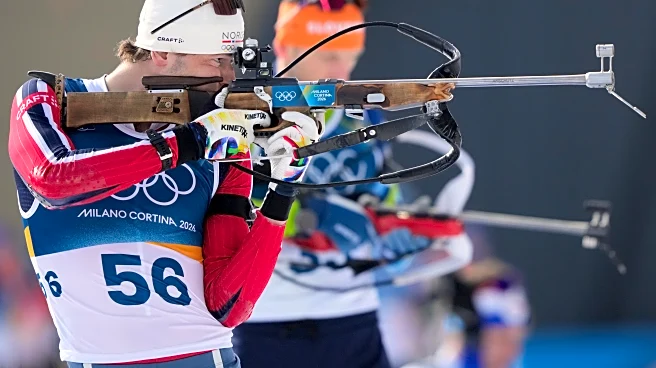What's Happening?
In a recent episode of 'The Joel Klatt Show: Big Noon Conversations,' Tom Brady expressed his belief that Patrick Mahomes is the quarterback who most resembles him in terms of approach to the game. Brady highlighted Mahomes' physical talent, understanding of offensive needs, and consistent winning attitude as key factors that align with his own career attributes. Despite Mahomes having statistically the worst season of his career in 2024, Brady's endorsement underscores Mahomes' ability to perform in crucial moments, particularly in the postseason. Mahomes has consistently outperformed other top quarterbacks like Josh Allen, Lamar Jackson, and Joe Burrow in playoff scenarios, reinforcing Brady's view.
Why It's Important?
Brady's recognition of Mahomes as a quarterback who mirrors his own approach is significant in the context of NFL leadership and performance standards. Mahomes' ability to deliver in high-pressure situations and his strategic understanding of the game positions him as a leading figure in the league. This endorsement from Brady, a seven-time Super Bowl champion, could influence perceptions of Mahomes' career trajectory and his standing among peers. It highlights the importance of leadership qualities and strategic thinking in achieving sustained success in the NFL.
What's Next?
As Mahomes continues to develop his career, the focus will be on maintaining his performance levels and further solidifying his legacy. Brady's comments may encourage Mahomes to take on more leadership roles within his team, potentially influencing organizational strategies and team dynamics. The ongoing comparison to Brady could drive Mahomes to refine his skills and approach, aiming to match or exceed Brady's achievements.
Beyond the Headlines
Brady's comments also touch on the broader role of quarterbacks as team leaders, akin to CEOs. This perspective may inspire other quarterbacks to adopt a more holistic approach to their roles, considering their impact on all aspects of team performance. The emphasis on leadership and strategic involvement could lead to shifts in how quarterbacks are trained and evaluated in the future.









